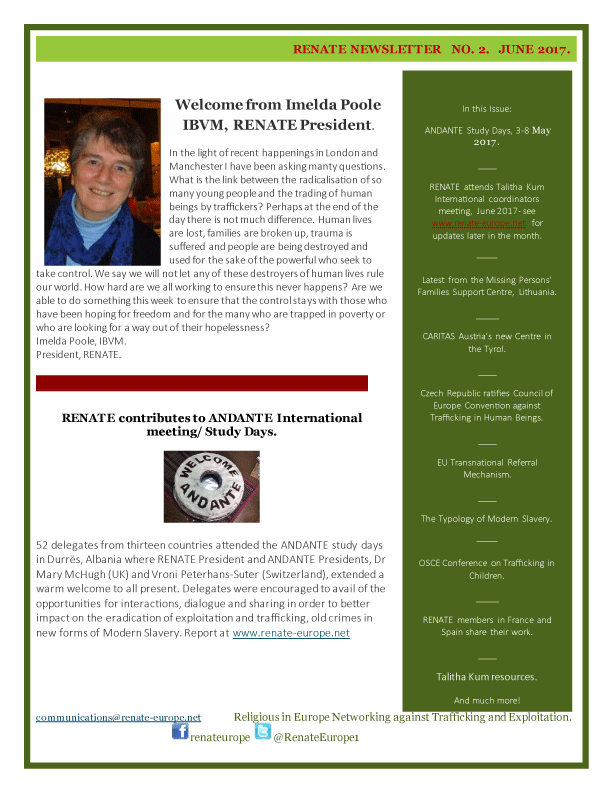 The Annual Trafficking in Persons Report (TIP) released on Tuesday, 27th June, highlights the successes achieved in the fight against human trafficking and also highlights the continuing challenges facing the world, as the crime against humanity continues to flourish. Sobering statistics are cited, for example, with more than 20 million estimated trafficking victims worldwide, there have been less than 15,000 prosecutions in 2016 and 10,000 convictions reported by governments.
The Annual Trafficking in Persons Report (TIP) released on Tuesday, 27th June, highlights the successes achieved in the fight against human trafficking and also highlights the continuing challenges facing the world, as the crime against humanity continues to flourish. Sobering statistics are cited, for example, with more than 20 million estimated trafficking victims worldwide, there have been less than 15,000 prosecutions in 2016 and 10,000 convictions reported by governments.
This year’s report places special emphasis on the importance of criminal prosecutions, not only as a deterrent to criminals but also as a testimony to survivors, that they matter. Countries are encouraged not only to increase the number of prosecutions but also to prescribe and impose sentences of such severity that they will deter others from engaging in human trafficking and exploitation.
Working closely with survivors was identified as being of significant importance, especially in trials to bring criminals to justice.
Governments worldwide are called to strengthen protections for victims, especially so that they are not penalised for crimes they had to commit as a direct result of human trafficking. There is also the recommendation that any criminal records attached to a victim for crimes committed during trafficking, be erased. The emphasis is on helping survivors secure the justice they deserve and return to a life of dignity and free will.
Full report available at https://www.state.gov/j/tip/rls/tiprpt/2017/
Prepared by Anne Kelleher, RENATE Communications Person.
Trafficking in Persons Report 2017.

.png)











